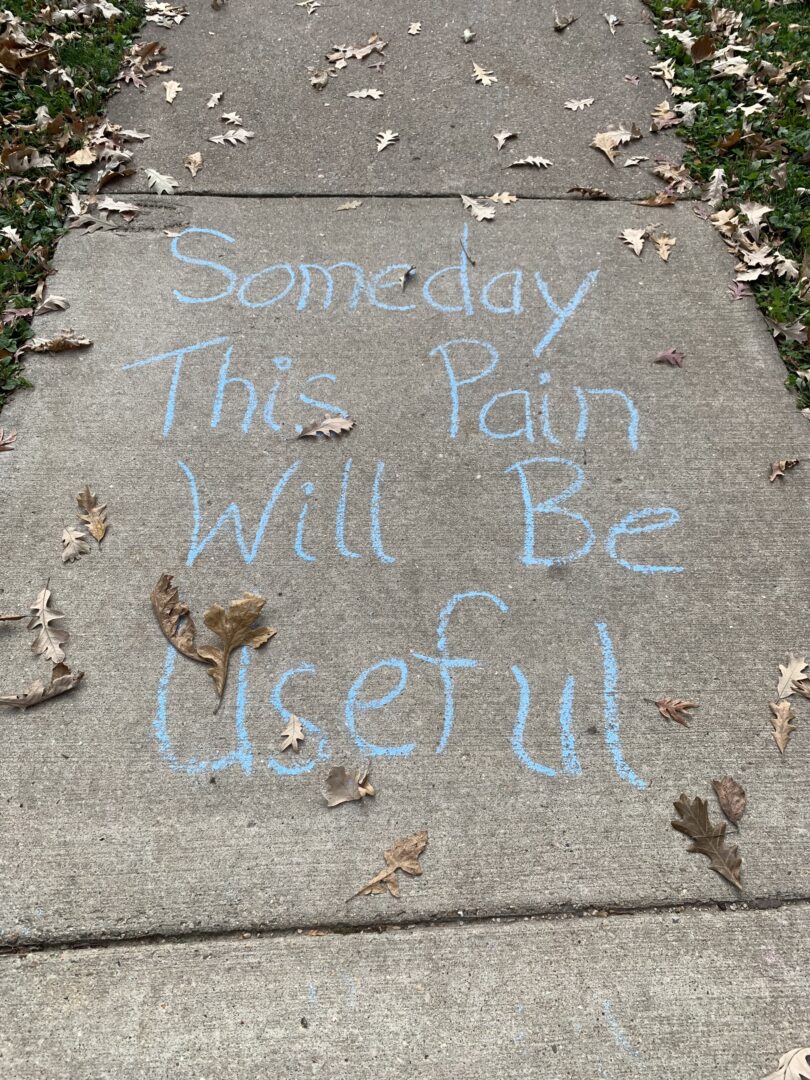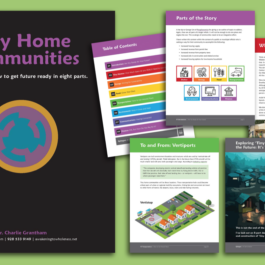What are the top 10 trends for the next ten years? Download the report here.

Photo: Rebecca Ryan
Humankind has been through a LOT in 2020. Many people are and will be affected by trauma. Good news: we can bounce forward instead of backward. Here's what you need to know.
What does “post-traumatic growth” mean?
Let’s pull it apart:
Trauma creates a need for new coping mechanisms;
Growth is the development and use of these new attitudes and behaviors.
Two levels of trauma
Level One Trauma is the kind you experience directly, like being hospitalized and on a ventilator with Covid. Level one trauma means the trauma happened to you.
Level Two Trauma is less direct. It's happening around you and has a cumulative effect. Maybe you watched a little too much news during Covid and haunted by images of refrigerator trucks or loved ones unable to enter patients’ rooms. Maybe Dad's been laid off, mom's quit her job so she can supervise the kids doing remote learning and there's stress on the kids, stress on the parents, and stress in society.
What’s the scope of our trauma?
The scope of post-traumatic stress disorder due to COVID19 is estimated at 90 million people by mid-2021. This number may be far short of the actual number because the medical lexicon doesn’t include all the ways that COVID19 has stressed and traumatized us.
The psychological impact of COVID19 is its uncertainty. Will we reach herd immunity? Will the variants outsmart or outpace our ability to get vaccinated? We simply don't know when it's going to end.
And then God forbid something happens. You or someone in your family contracts COVID. Now, BOOM, you also have Level One trauma on top of the more generalized, societal Level Two trauma.
It's not just fear of disease and social isolation. It's all the compounding effects of economics and a deeply felt sense of loss of control. It's more than psychological – it has a demonstrated physical component – your brain changes.
On top of that, we can't get together like we used to. Most of us use social interaction to mitigate stress. So, we've got a double whammy going on here. There's trauma eating away at us and we don't have the reliable coping mechanisms of close human interaction to mitigate it. You can think of it like an emotional well-being or a "Coping Account."
Your Coping Account
What happens when you spend more than you earn? You run a deficit. You're in debt. Debt creates stress. Same with your emotional well-being or "Coping Account:"
Your "expenses" are Level One and Level Two traumas. They draw down your Coping Account balance.
Your "income" includes human connection – hugs, get-togethers, smiles (which we can’t see because of masks), laughter, and attending musical, theatrical, or sporting events that enable us to experience big emotions as a group. These human interactions are deposits into our Coping Account. Having a positive account balance helps us deal with life's traumas.
How do I know when trauma’s getting serious?
If your Coping Account has a huge overdraft, these are the yellow flags to watch for in yourself and your loved ones:
Social withdrawal – reducing amount of interaction with other humans
Outward hostility - emotional or physical outbursts towards other people
Helplessness - Helplessness is a feeling of inadequacy or impotence. Sometimes this is conflated with hopelessness, which is a feeling of despair. A helpless person may not know what to do. A hopeless person feels that there’s no sense in trying.
Suicidal ideation - having thoughts about harming yourself or others
How to rebound - 4 strategies for post-traumatic growth
Redesign your social network. Take stock: who’s riding on your "bus" through life? Do these people leave you feeling energized or depleted? You’re in charge of the seats on your bus, and you can expand or contract your network to those who help fill your coping account. I recommend about seven people who bring you joy. Kick those emotional vampires off your bus!
Prioritize regular interactions with the folks on your bus. Be proactive. Don't wait for the call; make the call.
Learned optimism - stay away from self-reinforcing negative news, rumors, and people. Make a list of the good things you learned today. Keep a gratitude journal.
Share your story. What has COVID been like for you, physically, emotionally and spiritually? Write it down and share it with others.
So, now you have a place to start. Practice these techniques, and you can come out of this a stronger, more resilient person. There is hope. We can learn from past experiences of mass trauma. There are people out there (including this author) who've been to this rodeo and whose heartfelt wish is for you to emerge from COVID with a sense of what’s possible. To get my free "Self Care First Aid Kit" (PDF), email me.
This blog is based on a Futures Friday discussion between sociologist and wellness futurist Dr. Charlie Grantham, APF, and economist and futurist Rebecca Ryan, APF. Watch the whole conversation here.
If you enjoyed this post, please subscribe to our newsletter.

Charlie Grantham
Charlie Grantham, PhD, APF is a futurist, author, and strategist who’s helped dozens of our clients over the years. Charlie served in Special Forces in Vietnam and earned his PhD in Sociology. Afterwards, he worked on the front lines of the telecommunications and remote work revolutions. He’s seen a thing or two. His current focus is health care and well being. Charlie works from Tucson, AZ.
Yasemin Arikan Promoted to Director of Futures Research
NEXT Generation Consulting (NGC) announced the promotion of Yasemin Arikan to Director of Futures Research. Arikan will lead the company’s efforts to...
Is Your Housing Market Ready for Your Future?
One of the biggest problems facing many cities and towns is inadequate housing. This problem is most acute for seniors, veterans with disabilities, and low-income groups ...
Three Things Martha Stewart Gets Right About Return to Office (RTO)
The original influencer and the person who invented the "Home" retail category, Martha Stewart, became the latest CEO to tell employees to get back to the office five day...







